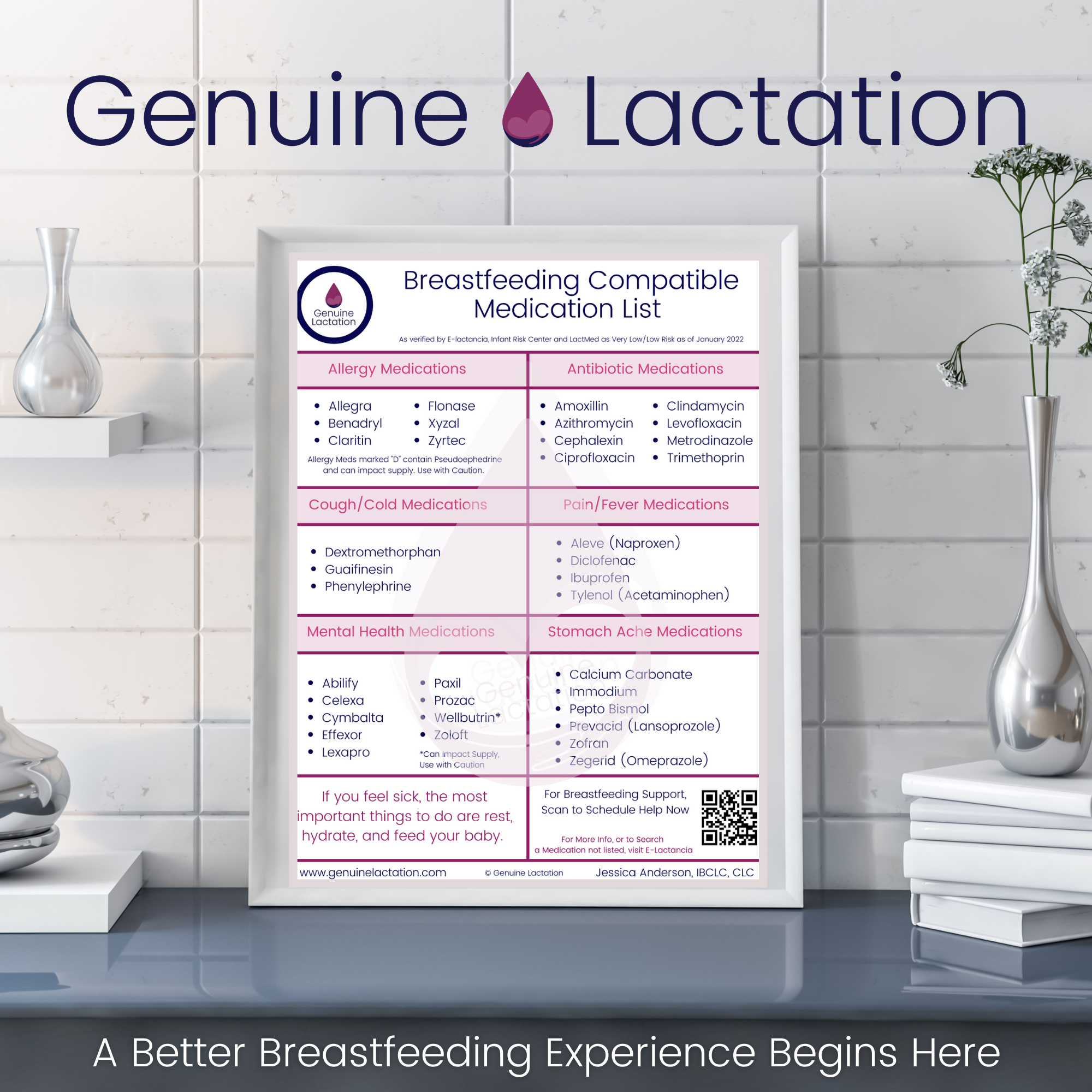What Medications are Safe for Breastfeeding?
One of the best things about living in a digital age is that we have access and answers to most of life’s questions within milliseconds. One of the worst things is that it can be hard to know if the answer you got was real, legitimate, or even accurate.
Moms work tirelessly to protect their children - and for the breastfeeding mother, it is an even bigger challenge because what mom consumes can have an impact on her baby.
The medical field isn’t always well-versed in the challenges of a breastfeeding mother, one of the biggest ones being medications that a mom needs to take to maintain her own health.
The good news is, many of the most commonly used over the counter and prescription medications are considered very low risk or low risk by 3 very well respected organizations. Even as professionals, we turn to E-Lactancia, LactMed, and Infant Risk Center to check to see if a medicine is safe for a breastfeeding mother.
Why Do I Even Need to Check if a Medication is Safe?
Not all doctors know about the 3 organizations listed above, and many aren’t educated on the effects particular medicines have when they cross through barriers in the mother’s body.
If you take a medication that can be considered a risk to your baby, it can lead to adverse outcomes for your baby, and we want to make sure we understand the risks so we can monitor accordingly. This is often a calculation of baby’s age, milk intake, medication timing, medication affect, and the risk to maternal health. For more information behind the science of this, read here.
In order to help parents, we created a free download for breastfeeding parents to use as a quick reference sheet when shopping or visiting the doctor. OR, if you’d rather, we also turned it into an affordable magnet for your fridge!
Why Don’t Drug Companies Just Tell Us if Their Medication is Safe for Breastfeeding?
Doing studies on pregnant or lactating individuals is problematic from a research and ethical standpoint. So, drug companies take the stance that they are all untested and should be avoided. Organizations like the Infant Risk Center actually study these medications in use to determine if adverse effects are happening. We also have some science to back what gets into milk and in what quantities, and many drugs are also used in pediatric populations so we can extrapolate from that what poses a risk or not.
What if there is No Safer Alternative to the Medicine I Need to Take?
This is actually pretty uncommon, but when it happens, we sometimes have to make an informed decision about whether breastfeeding should continue. Depending on the need for the medication, the risk to your health may outweigh the benefit of breastfeeding. But again, this is rare, and more often that not, the medication is actually safe. Always do the research before deciding for yourself, and remember that health care providers may not even understand lactation well enough to facilitate the informed decision making process.
If a Medication is Safe for Breastfeeding, Is it also Safe for Pregnancy?
Not necessarily, as the methods of crossing the placenta are different than the methods of entering breastmilk. Oral bioavailability of the medication in the milk is also a factor we have to consider. Pregnancy and lactation pose different concerns for medication, but this is something to be considered on a case-by-case basis.
Decongestants and Breastfeeding?
Allergy medication brands labeled with a “D” - like Zyrtec D, Allegra D, etc., contain a Decongestant called Pseudoephedrine. Pseudoephedrine can impact your milk supply, so while it may be safe to take, you do want to use caution if you’re prone to low supply issues, and watch your supply in general. Keeping well-hydrated especially when you are sick is generally good advice.
Can I take Anxiety or Depression Medications While Breastfeeding?
Absolutely. In fact, most mental health medications are considered very low or low risk. Don’t let a provider tell you it isn’t safe. If you think you need them, tell them you need them.
Please don’t let the fear of something being harmful to your child prevent you from the doing the research and asking the questions you have in order to keep your health in good order. It is likely there is a safe option available to you. Keep up the good work, momma!

